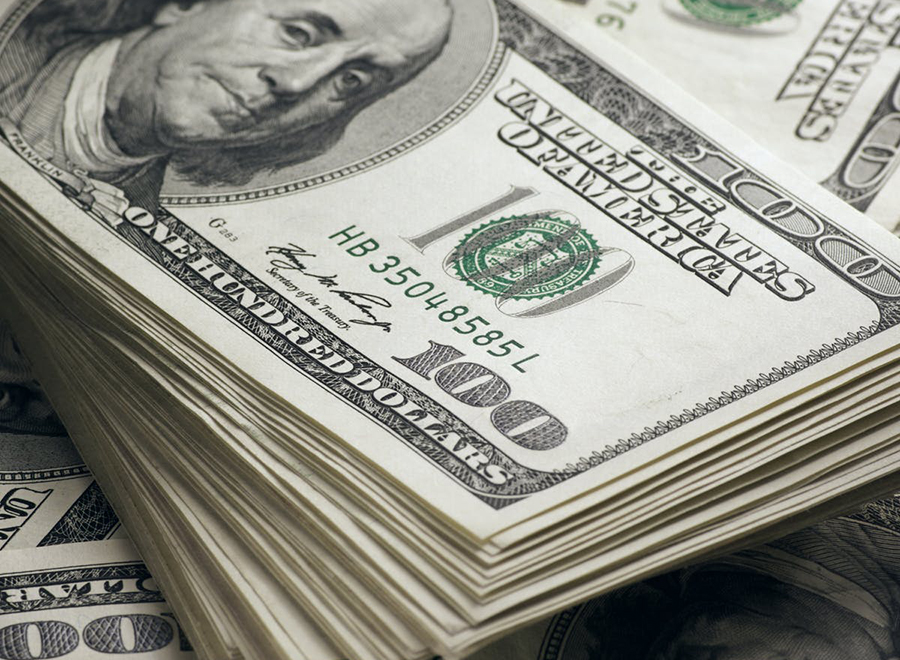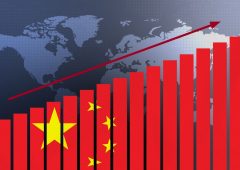Are Emerging Economies Poised to Dethrone the Dollar?
26.09.2024 19:00 2 min. read Alexander Stefanov
Former U.S. Treasury Secretary John Connally, who served under President Richard Nixon, famously remarked that "The dollar is our currency, but that's your problem."
This statement reflects the dollar’s dominant position in global finance, a status the U.S. has effectively exported worldwide. However, in recent years, emerging economies have begun a concerted effort to de-dollarize, aiming to diminish the dollar’s global influence and making it more of an American concern rather than an international one.
While the U.S. dollar still plays a critical role in global finance through remittances, currency exchanges, and international trade, it continues to overshadow other currencies.
Most global transactions occur in dollars, which often sidelines alternative currencies. Despite initiatives aimed at reducing reliance on the dollar, it remains a dominant force in financial markets.
The push for de-dollarization is particularly evident among developing nations like China, Russia, Brazil, South Africa, and India. These countries are striving to lessen their dependence on the U.S. dollar and promote their own currencies to bolster their economies.
This trend aligns with a perceived decline in U.S. influence globally, as many emerging markets are now achieving higher GDP growth rates than the U.S. and its Western allies. For these nations, moving away from the dollar is seen as a long-term strategy rather than a temporary shift, intensifying the scrutiny on the dollar’s stability.
Should these efforts prove successful, the next decade could usher in significant changes to the global financial landscape. The dollar might weaken, leading to a rise in the strength of local currencies. Such a transformation could have profound implications for various sectors within the U.S., emphasizing the potential economic repercussions of de-dollarization.
-
1
SoFi Returns to Crypto with Trading, Staking, and Blockchain Transfers
27.06.2025 8:00 1 min. read -
2
GENIUS Act Could Reshape Legal Battle over TerraUSD and LUNA Tokens
30.06.2025 9:00 1 min. read -
3
Whales Buy the Dip as Retail Panics: This Week in Crypto
29.06.2025 14:00 3 min. read -
4
History Shows War Panic Selling Hurts Crypto Traders
28.06.2025 18:30 3 min. read -
5
Ripple Faces Legal Setback as Court Rejects Bid to Ease Penalties
26.06.2025 16:54 1 min. read
PayPal Expands PYUSD to Arbitrum in Latest Blockchain Push
PayPal has expanded its stablecoin, PayPal USD (PYUSD), to the Arbitrum network, marking a key step in its strategy to integrate with faster, more cost-efficient blockchain infrastructure.
Citigroup Explores Launching Stablecoin as Banks Embrace Crypto Shift
Citigroup is evaluating the potential launch of its own U.S. dollar-backed stablecoin, signaling a growing shift in sentiment among traditional financial institutions toward digital assets.
JPMorgan CEO Jamie Dimon Comments Stablecoins
JPMorgan Chase CEO Jamie Dimon remains skeptical of stablecoins—but says ignoring them isn’t an option for the world’s most powerful bank.
Crypto Cycles are Evolving: Analyst Explains Why Old Patterns no Longer Work
According to crypto analyst Atlas, the traditional four-year cycle that once defined Bitcoin and altcoin market behavior is now obsolete.
-
1
SoFi Returns to Crypto with Trading, Staking, and Blockchain Transfers
27.06.2025 8:00 1 min. read -
2
GENIUS Act Could Reshape Legal Battle over TerraUSD and LUNA Tokens
30.06.2025 9:00 1 min. read -
3
Whales Buy the Dip as Retail Panics: This Week in Crypto
29.06.2025 14:00 3 min. read -
4
History Shows War Panic Selling Hurts Crypto Traders
28.06.2025 18:30 3 min. read -
5
Ripple Faces Legal Setback as Court Rejects Bid to Ease Penalties
26.06.2025 16:54 1 min. read


